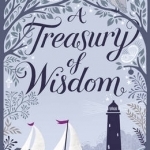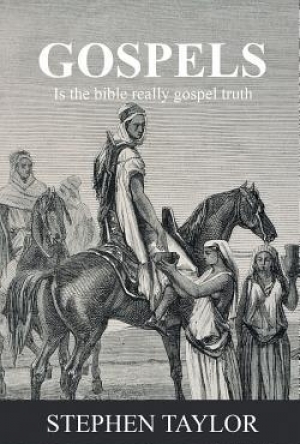
Scriptural Rosary
Utilities and Reference
App
This app is a great way of praying the Rosary, because each Hail Mary is preceded by short scripture...
TravelersWife4Life (31 KP) rated Essential Oils: God’s Extravagant Provision for Your Health in Books
Feb 24, 2021
The first thing I noticed, was Teri Secrest’s love for her family. It is readily apparent throughout the whole book. She shares many examples of times that her family has used essential oils in their intended purpose with great success, even in the face of great odds. Personally, it was cool to read about the different healing properties that essential oils provide. It encouraged me to try new things, and research more about essential oils to know if the ones I am currently using are actually “pure” or if they are artificial scents.
Second, Teri Secrest has taken the time to research everything about essential oils, from the process of making the oils, preserving the oils, and the Biblical implications of the different oils. She has pursued the knowledge of essential oils for most of her life, she has sought that knowledge from others who have made it their lives work to keep essential oils alive for generations to come. Teri has also extensively traveled to places where essential oils are grown and preserved. Her love of that essential oils readily shows in her portrayal of the importance of essentials in our daily lives; based on the biblical use of essential oils.
Third, I loved how this book read as more of a story. Teri Secrest walked me through the Bible (highlights, stories, and Biblical references) of different times where essential oils were used and the purposes in using them. I think my favorite was the story of King Solomon. However, there are over 500 different references to essential oils in the Bible! I had no idea that essential oils were so extensively mentioned in the Bible. Interwoven throughout these Biblical stories is Teri Secrest’s personal journey with learning to use different essential oils.
Overall, I was wonderfully surprised by this well laid out storyline that read like a novel (almost), with colorful pictures, descriptions, and the recipes for different essential oil uses. I truly think that this was a great book to grow my understanding of essential oils and how they relate to the Bible and our overall health. I am looking forward to trying some of the ideas that Teri Secrest mentioned.
I give this book 5 out of 5 stars for the creative storytelling Teri Secrest used to weave in multiple facts, Biblical wisdom, and personal stories to create an informative and enjoyable book. As well as the assembly of Biblical facts explained in an easy to understand way and the vivid descriptions of the different oils used in the Bible. I truly cannot recommend a book more.
*As a side note I usually include a disclaimer saying I was given this book in exchange for my honest review, which I was. However, I have also purchased a copy for myself and two additional copies as Christmas gifts, as I believe people will really enjoy and learn from this book.
Is the Bible really gospel truth? This is the question the honourable, academic Robert Babcock aims to find out on his quest to find the earliest copies of the gospels in order to prove the reliability of the story of Jesus as recounted in the King James Bible. However, this is not the key focus of Stephen Taylor’s fictional novel, Gospels. The main character is the perfidious John Campbell-John, a rogue, imposter and swindler who flees 19th-century England in an attempt to escape from his debts.
John meets the magnanimous Robert in Venice and, despite being polar opposites, become firm friends. After being honest for the first time in his life, admitting to owing thousands of pounds in gambling debts, Robert offers John the opportunity to accompany him on his quest through the deserts of Egypt. John accepts and the pair finds themselves on an adventure of discovery and personal redemption.
John and Robert make an unlikely but excellent team. Robert’s knowledge of the Bible and ancient history is vital, however, John’s propensity for falsehoods and cunningness gets them out of a few scrapes and tricky situations. Nonetheless, it is difficult for John to give up his old ways and his insular behaviour threatens to get them in more trouble.
Fortunately, Robert’s humility begins to influence the young scoundrel, as does his penchant for historical artefacts. As the story progresses, John begins to leave his past behind and becomes interested in Robert’s work, learning new things about Egyptian culture and the origins of the Bible. However, when a new gospel comes to light that threatens the whole of Christianity, Robert does not know what to do; and only John can give him counsel.
John Campbell-John is a character that the author introduced in a previous book. However, the timelines are not sequential, therefore Gospels is a stand-alone novel. The time frame for this book needed to be set in 1835 to correspond with historical truths. Although Robert’s discovery of a Gospel of Thaddeus Jude is an invention of the author, the quest itself is based on the journeys of three 19th-century Bible hunters. Stephen Taylor has conducted an enormous amount of research, including the biographies of Robert Curzon, Constantin von Tischendorf and Émile Amélineau who, on separate occasions, sought the same knowledge as the fictional Robert Babcock.
Despite being titled Gospels, the novel, for the most part, focuses on John Campbell-John and his wicked ways. Through a first-person narrative, John explains his past, his betrayal of a friend, and his addiction to gambling. Initially, he has no qualms about his behaviour and acts only for himself and his selfish greed. Whilst Robert goes in search of knowledge, John goes on a journey of redemption, coming to terms with his previous wrongdoings. However, acknowledging these faults is not enough, he needs to turn away from these roguish ways.
It is disappointing that the narrative does not focus more on the gospels, both real and imagined. There was enormous scope for an in-depth look at the life of Jesus and the inconsistencies in the Bible. The fictitious Gospel of Thaddeus Jude evokes a similar reaction in Robert as the Non-Canonical Gospel of Thomas found in the 19th-century had on many devout Christians. There was so much potential with this direction of thought, however, the author passes over it in preference to the life of John Campbell-John.
Slow to begin but increasingly interesting as it progresses, Gospels is a book of many themes. History, both 19th-century and ancient; religion, although not a Christian story; and achievement and absolution combine together to produce a unique tale that takes the reader from the back alleys of London to the River Nile and the deserts of Sinai. A subtle clue in the prologue keeps readers alert as they await the conclusion of the adventure – an ending that ambiguously reveals whether John moves on from the follies of his past.
Is the Bible really gospel truth?</i> This is the question the honourable, academic Robert Babcock aims to find out on his quest to find the earliest copies of the gospels in order to prove the reliability of the story of Jesus as recounted in the King James Bible. However, this is not the key focus of Stephen Taylor’s fictional novel, <i>Gospels</i>. The main character is the perfidious John Campbell-John, a rogue, imposter and swindler who flees 19th-century England in an attempt to escape from his debts.
John meets the magnanimous Robert in Venice and, despite being polar opposites, become firm friends. After being honest for the first time in his life, admitting to owing thousands of pounds in gambling debts, Robert offers John the opportunity to accompany him on his quest through the deserts of Egypt. John accepts and the pair finds themselves on an adventure of discovery and personal redemption.
John and Robert make an unlikely but excellent team. Robert’s knowledge of the Bible and ancient history is vital, however, John’s propensity for falsehoods and cunningness gets them out of a few scrapes and tricky situations. Nonetheless, it is difficult for John to give up his old ways and his insular behaviour threatens to get them in more trouble.
Fortunately, Robert’s humility begins to influence the young scoundrel, as does his penchant for historical artefacts. As the story progresses, John begins to leave his past behind and becomes interested in Robert’s work, learning new things about Egyptian culture and the origins of the Bible. However, when a new gospel comes to light that threatens the whole of Christianity, Robert does not know what to do; and only John can give him counsel.
John Campbell-John is a character that the author introduced in a previous book. However, the timelines are not sequential, therefore <i>Gospels</i> is a stand-alone novel. The time frame for this book needed to be set in 1835 to correspond with historical truths. Although Robert’s discovery of a Gospel of Thaddeus Jude is an invention of the author, the quest itself is based on the journeys of three 19th-century Bible hunters. Stephen Taylor has conducted an enormous amount of research, including the biographies of Robert Curzon, Constantin von Tischendorf and Émile Amélineau who, on separate occasions, sought the same knowledge as the fictional Robert Babcock.
Despite being titled <i>Gospels</i>, the novel, for the most part, focuses on John Campbell-John and his wicked ways. Through a first-person narrative, John explains his past, his betrayal of a friend, and his addiction to gambling. Initially, he has no qualms about his behaviour and acts only for himself and his selfish greed. Whilst Robert goes in search of knowledge, John goes on a journey of redemption, coming to terms with his previous wrongdoings. However, acknowledging these faults is not enough, he needs to turn away from these roguish ways.
It is disappointing that the narrative does not focus more on the gospels, both real and imagined. There was enormous scope for an in-depth look at the life of Jesus and the inconsistencies in the Bible. The fictitious Gospel of Thaddeus Jude evokes a similar reaction in Robert as the Non-Canonical Gospel of Thomas found in the 19th-century had on many devout Christians. There was so much potential with this direction of thought, however, the author passes over it in preference to the life of John Campbell-John.
Slow to begin but increasingly interesting as it progresses, <i>Gospels</i> is a book of many themes. History, both 19th-century and ancient; religion, although not a Christian story; and achievement and absolution combine together to produce a unique tale that takes the reader from the back alleys of London to the River Nile and the deserts of Sinai. A subtle clue in the prologue keeps readers alert as they await the conclusion of the adventure – an ending that ambiguously reveals whether John moves on from the follies of his past.

300 Best Homemade Candy Recipes: Brittles, Caramels, Chocolates, Fudge, Truffles & So Much More
Book
The step-by-step bible for home sweets-makers. With hundreds of recipes for mouthwatering candies,...
The devotions are picked to suit the day or season. Each starts with a verse, then the devotion, and followed by a prayer. The devotions are typically on one page per day. The reader may start any day of the year or start from January 1 and read to December 31.
I received this book from Barbour Publishing, Inc. via NetGalley in exchange for an honest review.

Machinery's Handbook
Book
For more than 100 years, Machinery's Handbook has been the most popular reference work in...

A Treasury of Wisdom
Mary Joslin and Kate Forrester
Book
Just as the boats on the cover are guided safely into harbour by the lighthouse, this book offers...

Sax's Dangerous Properties of Industrial Materials, Set CD-ROM
Book
Since its publication in the 1950s, this important resource is considered the bible by those who...

Life, Money and Hope with Chris Brown
Podcast
We are faced with decisions every day—decisions about our careers, parenting, relationships and...


